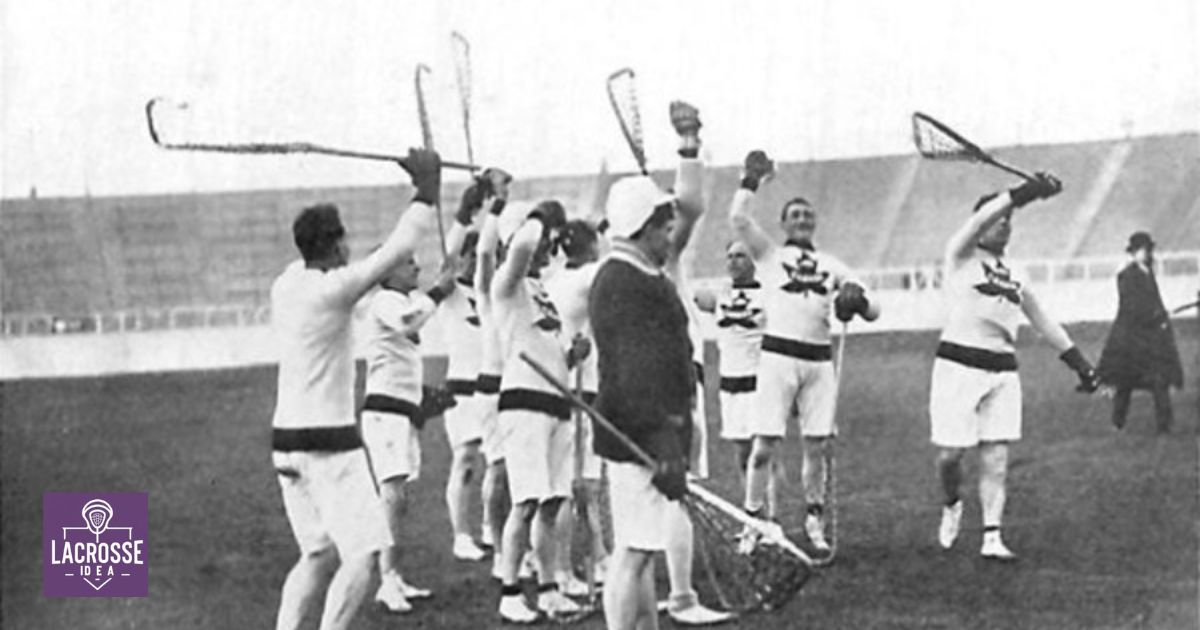Lacrosse, the exhilarating and strategic sport that encapsulates the spirit of competition and camaraderie, has long been a source of inspiration and national pride. As its popularity surges across the globe, a burning question arises: Is Lacrosse an Olympic Sport? This article delves into the history, challenges, and potential benefits of lacrosse’s inclusion in the esteemed Olympic Games. Join us on this journey as we explore the captivating world of lacrosse and its quest for Olympic recognition.
Key Takeaways
- Lacrosse originated from Native American cultures and first appeared as a demonstration sport in the 1904 Summer Olympics.
- Lacrosse has gained popularity and recognition worldwide, attracting athletes and spectators with its fast-paced nature and physicality.
- Arguments for lacrosse’s inclusion in the Olympics include its growing global popularity, desire for inclusivity and diversity, and reflection of Olympic values.
- Challenges and obstacles to lacrosse’s Olympic bid include lack of global recognition, limited infrastructure in non-traditional lacrosse countries, competition from established Olympic sports, and the need for funding and sponsorship.
History Of Lacrosse In The Olympics
Although lacrosse has a rich history, it was not included as an Olympic sport until recently. Lacrosse, a game originating from Native American cultures, dates back centuries and has deep roots in North America. However, it wasn’t until the 1904 Summer Olympics in St. Louis, Missouri, that lacrosse made its first appearance as a demonstration sport. The game was played by teams from Canada and the United States, showcasing its fast-paced and physical nature.
Despite its initial introduction, lacrosse failed to gain permanent Olympic status at that time. It took over a century for the sport to be recognized again on the Olympic stage. In 2018, the International Olympic Committee approved lacrosse as one of the sports for inclusion in the 2028 Los Angeles Olympics. This decision marked a significant milestone for lacrosse enthusiasts worldwide, providing a sense of belonging and recognition for the sport’s historical and cultural significance.
Current Status Of Lacrosse As An Olympic Sport
Lacrosse’s current status as an Olympic sport reflects a significant milestone in its journey towards global recognition and acceptance. After being recognized as a demonstration sport in the 1928 and 1932 Olympic Games, lacrosse finally made its official debut as a medal sport in the 1904 St. Louis Games. However, due to various reasons, it was later removed from the Olympic program.
In recent years, efforts have been made to reintroduce lacrosse to the Olympics, with the International Lacrosse Federation (now World Lacrosse) actively advocating for its inclusion. Lacrosse’s inclusion in the 2028 Los Angeles Olympics as a medal sport has been proposed, which would provide the sport with a platform to showcase its rich history, athleticism, and global appeal. This potential return to the Olympics highlights the growing popularity and global reach of lacrosse.
Lacrosse’s Popularity And Global Reach
Lacrosse has gained significant popularity and global recognition as a sport. With its origins rooted in Native American cultures, lacrosse has transcended borders and captivated the hearts of people worldwide. The sport’s fast-paced nature and physicality have attracted athletes and spectators alike, fostering a sense of belonging within the lacrosse community.
Lacrosse’s popularity has grown not only in traditional strongholds such as the United States and Canada but also in countries like Australia, England, and Japan. Global tournaments, such as the World Lacrosse Championships, further promote the sport’s reach and provide a platform for nations to showcase their skills and passion. Lacrosse’s increasing presence in schools, universities, and professional leagues solidifies its status as a global sport, uniting individuals who share a love for the game and a desire for inclusivity.
Arguments For Lacrosse’s Inclusion In The Olympics
One compelling argument for including lacrosse in the Olympics is its growing global popularity and participation. Lacrosse is no longer confined to a few countries, but has gained a significant following worldwide. This increased interest in the sport reflects a desire for inclusivity and diversity in the Olympics. By including lacrosse, the International Olympic Committee (IOC) would send a message of recognition and support to the lacrosse community, fostering a sense of belonging among its players and fans.
Moreover, lacrosse’s global reach aligns with the Olympic values of promoting friendship, respect, and excellence. By showcasing lacrosse on the Olympic stage, the IOC would provide an opportunity for athletes from different countries to come together, compete, and forge new bonds, further strengthening the sense of unity and camaraderie that the Olympics aim to cultivate.
Challenges And Obstacles To Lacrosse’s Olympic Bid
The challenges and obstacles facing lacrosse’s Olympic bid are multifaceted and require careful consideration. Despite lacrosse’s growing popularity and international reach, there are several barriers that need to be overcome for it to become an Olympic sport. These challenges include:
- Lack of global recognition: Lacrosse is predominantly played in North America and parts of Europe, which limits its global recognition and appeal.
- Limited infrastructure: Developing lacrosse programs and facilities in countries where the sport is not well-established can be a significant obstacle.
- Competition from other sports: Lacrosse faces tough competition from established Olympic sports that have a long-standing history and tradition.
- Funding and sponsorship: Securing adequate funding and attracting major sponsors is crucial for the growth and promotion of the sport.
- International governing body support: Gaining support from the International Olympic Committee and other influential sporting bodies is essential for lacrosse’s inclusion in the Olympic Games.
Addressing these challenges and working towards overcoming them will be crucial in achieving lacrosse’s Olympic aspirations.
Lacrosse’s Potential Impact On The Olympic Movement
Lacrosse’s potential impact on the Olympic movement can be significant in terms of expanding the diversity of sports represented and attracting a broader global audience. As a sport that originated from indigenous communities in North America, lacrosse has a rich cultural heritage that could contribute to the Olympic Games’ mission of promoting unity and understanding among nations. By including lacrosse as an Olympic sport, the Games would demonstrate a commitment to inclusivity and recognition of the sport’s historical and cultural significance.
Moreover, lacrosse’s fast-paced and dynamic nature could appeal to a younger demographic, helping to engage a wider audience and generate increased interest in the Olympic movement. By embracing lacrosse, the Olympic Games can continue to evolve and showcase the world’s diverse sporting traditions, fostering a sense of belonging and shared celebration of athletic excellence.
Lacrosse’s Representation And Diversity In The Olympics
The representation and diversity of lacrosse in the Olympics has the potential to showcase the sport’s cultural significance and attract a broader global audience. Lacrosse’s participation in the Olympic Games can help promote inclusivity, celebrate different cultures, and foster a sense of belonging among athletes and fans. Here are five reasons why lacrosse’s representation and diversity in the Olympics matter:
- Cultural Exchange: Lacrosse’s presence in the Olympics allows for the sharing of diverse playing styles, traditions, and histories, promoting a greater understanding and appreciation of different cultures.
- Inspiration for Young Athletes: Seeing athletes from various backgrounds compete in lacrosse at the highest level can inspire young players, regardless of their ethnicity or nationality, to pursue the sport and fulfill their dreams.
- Expanded Global Reach: By including diverse teams in the Olympic competition, lacrosse can reach a wider audience worldwide, promoting the growth and popularity of the sport in new regions.
- Breaking Stereotypes: Lacrosse’s diverse representation challenges stereotypes and misconceptions, highlighting the sport’s ability to bring together people from different backgrounds and unite them through a shared passion.
- Celebration of Diversity: The Olympic Games are a platform to celebrate diversity and promote equality. Lacrosse’s representation in the Olympics can serve as a powerful symbol of unity, showcasing the sport’s ability to bring people together, regardless of their cultural or ethnic backgrounds.
Lacrosse’s Role In Promoting Gender Equality In Sports
With its inclusion in the Olympics, lacrosse not only showcases its cultural significance and diversity, but also plays a crucial role in promoting gender equality in sports. Lacrosse stands as a sport that fosters inclusivity and empowers athletes of all genders to compete on an equal playing field. To illustrate this point, let’s take a look at the following table:
| Gender | Representation in Lacrosse | Opportunities for Participation |
|---|---|---|
| Male | High | Abundant |
| Female | Increasing | Expanding |
| Non-binary | Emerging | Growing |
As we can see, lacrosse provides an inclusive environment for athletes of all genders, with opportunities for participation expanding across the board. By promoting gender equality in sports, lacrosse sends a powerful message of inclusivity and belonging, inspiring individuals to pursue their athletic dreams regardless of their gender. In the next section, we will explore lacrosse’s adaptability to Olympic format and rules, further highlighting its suitability as an Olympic sport.
Lacrosse’s Adaptability To Olympic Format And Rules
Lacrosse demonstrates its potential as an Olympic sport through its seamless adaptation to the format and rules of the Games. The sport’s adaptability is evident in the following ways:
- Inclusion of both men’s and women’s divisions: Lacrosse embraces gender equality by featuring separate competitions for men and women, ensuring equal opportunities for participation and recognition.
- Team-based gameplay: Lacrosse’s emphasis on teamwork aligns with the Olympic spirit of collaboration and unity, fostering a sense of belonging among athletes.
- Fast-paced and dynamic nature: The sport’s high-speed gameplay and constant action captivate spectators, making it an exciting addition to the Olympic program.
- Global participation: Lacrosse’s popularity is rapidly growing worldwide, with an increasing number of countries participating in international competitions.
- Rule standardization: The sport has established standardized rules and regulations, promoting fairness and consistency across different competitions.
With its adaptability to the Olympic format and rules, lacrosse is ready to showcase its potential on the global stage. Now, let’s explore lacrosse’s international competitions and championships.
Lacrosse’s International Competitions And Championships
Lacrosse’s participation in international competitions and championships showcases its global reach and competitive nature. The sport has gained significant popularity and has established itself as a truly international game. One of the most prestigious tournaments in lacrosse is the World Lacrosse Championships, held every four years. This event brings together national teams from around the world to compete for the title of world champion.
Additionally, regional tournaments like the European Lacrosse Championships and the Asia Pacific Lacrosse Championships provide opportunities for teams to showcase their skills and foster camaraderie among lacrosse communities. These competitions not only promote the growth of the sport but also strengthen the sense of belonging within the lacrosse community. The passion and dedication exhibited by players and fans in these international events highlight the global appeal of lacrosse.
Lacrosse’s Journey Towards Olympic Recognition
As lacrosse continues to gain global popularity and showcase its competitive nature in international competitions and championships, its journey towards Olympic recognition becomes increasingly significant. Here are some key points to consider in lacrosse’s path towards becoming an Olympic sport:
- Lacrosse’s rich historical roots and cultural significance to indigenous communities.
- The sport’s rapid growth and expansion, particularly in non-traditional lacrosse regions.
- The successful inclusion of lacrosse in other major multi-sport events, such as the World Games and the Commonwealth Games.
- The efforts of international lacrosse governing bodies, such as World Lacrosse, in advocating for Olympic recognition.
- The potential for lacrosse to inspire and engage a new generation of athletes and fans through its presence in the Olympic Games.
With these factors in mind, it becomes clear that lacrosse’s inclusion in the Olympic Games would bring numerous benefits to the sport.
Lacrosse’s Potential Benefits From Olympic Inclusion
The potential benefits of lacrosse’s inclusion in the Olympic Games are significant and far-reaching. The sport’s recognition on such a global platform would provide a sense of belonging and validation for lacrosse players and enthusiasts worldwide. Olympic inclusion would elevate the profile of lacrosse, attracting more participants and increasing interest in the sport. This, in turn, could lead to greater funding opportunities, improved infrastructure, and enhanced training programs.
Lacrosse’s presence in the Olympic Games would also promote cultural exchange and foster a sense of unity among nations, as athletes from different backgrounds come together to compete. Furthermore, the exposure gained from Olympic coverage would help lacrosse reach a wider audience, inspiring more individuals to take up the sport and further fuel its growth. Overall, the benefits of Olympic inclusion for lacrosse cannot be overstated, as it would undoubtedly contribute to the sport’s development and global recognition.
Lacrosse’s Impact On Athletes And National Teams
Lacrosse has a profound impact on athletes and national teams. It not only provides them with a platform to showcase their skills, but also offers numerous benefits that contribute to their growth and development. Here are some ways in which lacrosse impacts athletes and national teams:
- Fosters teamwork and camaraderie: Lacrosse requires players to work together as a cohesive unit, promoting teamwork and building strong bonds among teammates.
- Enhances physical fitness: The fast-paced nature of lacrosse helps athletes improve their endurance, agility, and overall fitness levels.
- Develops strategic thinking: Lacrosse involves quick decision-making and strategic planning, enhancing players’ cognitive abilities.
- Boosts self-confidence: Achieving success in lacrosse boosts athletes’ self-esteem and confidence, both on and off the field.
- Promotes national pride: Representing their country in international lacrosse competitions instills a sense of pride and patriotism among national teams.
As we explore lacrosse’s future prospects as an Olympic sport, it is important to consider the impact it has on athletes and national teams.
Lacrosse’s Future Prospects As An Olympic Sport
With the upcoming Summer Olympic Games in sight, lacrosse’s potential inclusion as an Olympic sport is generating significant interest. As a sport that has a rich history and is rapidly growing in popularity, lacrosse has the potential to captivate audiences worldwide and further promote inclusivity and diversity within the Olympics. Lacrosse’s unique combination of speed, skill, and physicality makes it an exciting addition to the Olympic program.
Moreover, the sport’s global reach, with participation from various countries, demonstrates its potential for widespread appeal. Recognizing the increasing demand for new and exciting sports, the International Olympic Committee has expressed openness to considering lacrosse for future Olympic Games. As lacrosse continues to gain momentum and attract a larger fan base, its chances of becoming an Olympic sport are becoming more promising, providing athletes and fans alike with a sense of belonging and pride.
Frequently Asked Questions
How Long Has Lacrosse Been Played in the Olympics?
Lacrosse has been played in the Olympics since 1904, when it was included as a demonstration sport. It made its official return in 2028, with both men’s and women’s competitions being added to the program.
What Other International Competitions Are There for Lacrosse Outside of the Olympics?
Outside of the Olympics, there are various international competitions for lacrosse, including the World Lacrosse Championships, which bring together teams from around the world to showcase their skills and compete for the title.
How Has Lacrosse’s Popularity Grown Globally in Recent Years?
In recent years, lacrosse’s popularity has grown globally due to increased participation, media coverage, and international tournaments. The sport’s appeal lies in its fast-paced nature, strategic gameplay, and inclusive community, attracting both players and fans worldwide.
What Are Some of the Main Challenges That Lacrosse Faces in Becoming an Olympic Sport?
Lacrosse faces several challenges in becoming an Olympic sport. These include the need for increased global participation, standardization of rules and regulations, securing funding for development programs, and gaining recognition from the International Olympic Committee.
How Would Lacrosse’s Inclusion in the Olympics Benefit the Sport and Its Athletes?
The inclusion of lacrosse in the Olympics would bring numerous benefits to the sport and its athletes. It would increase visibility, provide greater opportunities for competition and growth, and elevate the status of lacrosse on a global scale.
Conclusion
In conclusion, lacrosse’s journey towards Olympic recognition has been a challenging one, with obstacles and challenges along the way. Despite its growing popularity and global reach, there are still arguments for and against its inclusion in the Olympics. However, if lacrosse were to be included in the Olympic Games, it has the potential to bring numerous benefits to the sport, athletes, and national teams. The future prospects of lacrosse as an Olympic sport hold great promise and potential.









